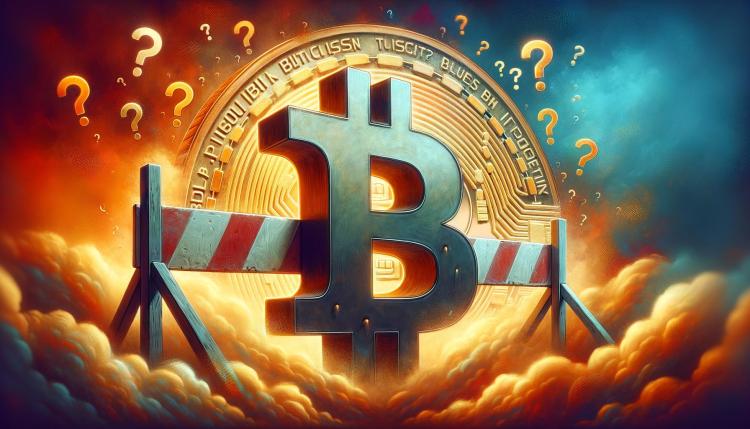Reason to trust

How Our News is Made
Strict editorial policy that focuses on accuracy, relevance, and impartiality
Ad discliamer
Morbi pretium leo et nisl aliquam mollis. Quisque arcu lorem, ultricies quis pellentesque nec, ullamcorper eu odio.
Donald Trump is upping the pressure on China, and analysts say this is bullish for Bitcoin.
For those who missed the memo, on Friday morning, the American President unleashed his latest volley at China (and the Federal Reserve) in a series of tweets. “For many years China has been taking advantage of the United States”, Trump wrote, adding that China has cost America “HUNDREDS OF BILLIONS OF DOLLARS” each and every year.
For many years China (and many other countries) has been taking advantage of the United States on Trade, Intellectual Property Theft, and much more. Our Country has been losing HUNDREDS OF BILLIONS OF DOLLARS a year to China, with no end in sight….
— Donald J. Trump (@realDonaldTrump) August 23, 2019
To achieve “balance” in the trade equation, Trump went on to assert that the “remaining 300 BILLION DOLLARS” of good and products sourced from China will be taxed at a tariff rate of 15%, not the previously-imposed 10%.
At the same time, he also asserted that the Federal Reserve, whose leaders are currently convening in Jackson Hole with the world’s central bankers, should cut rates. Hard.
Related Reading: Bitcoin Price Could Test Bottom of Weekly Range, MACD Turning Bear
Of course, the market reacted. Immediately. Stocks tanked, the Chinese Yuan lost relative value against the U.S. Dollar, and safe havens surged — Bitcoin included. As pro-cryptocurrency economist Alex Krüger noted on Twitter, “today was the first time BTC reacted sharply in *real-time* to a Trade War breaking headline or USD/CNY [daily] fix.”
Today was the first time $BTC reacted sharply in *real-time* to a Trade War breaking headline or $USDCNY fix. pic.twitter.com/Usibh3bSD5
— Alex Krüger (@krugermacro) August 23, 2019
Bitcoin Could Continue to Surge Off Tariffs
Indeed, Bitcoin has seemingly benefited from Trump’s latest move against China. As of the time of writing this, the cryptocurrency is trading up 3% today at $10,400. Altcoins have posted similar gains.
This correlation between the publishing of Trump’s tweets and the rally in the price of both gold and Bitcoin seem to have convinced analysts yet again that Bitcoin is a safe haven play, which has been a contested narrative over recent weeks.
Analyst Luke Martin recently suggested that with the Chinese Yuan looking to become even weaker, Bitcoin “looks like it wants to catch up.” This is implying that should the Chinese Yuan continue to shed value, Bitcoin could rally, potentially to fresh year-to-date highs beyond $14,000.
With trade war narrative revival in full effect, quick look at how $BTC looks vs the $USDCNH action. The two were moving in lockstep until the breakdown Aug 14th.
On the news this morning $USDCNH is VERY close to breaking highs.
Looks like $BTC wants to catch up. pic.twitter.com/d4e3APgbsb
— Luke Martin (@VentureCoinist) August 23, 2019
Even if Bitcoin doesn’t catch up right now, these tariffs should drive demand for Bitcoin in the long run. That’s what “Hans HODL” of crypto fund Ikigai recently proposed anyway.
Related Reading: Is Bitcoin Not a Safe Haven? Crypto Crashes in Tandem With Dow
The senior quantitative analyst at Ikigai issued a six-part thread, outlining why “these Chinese tariffs” — evidently referring to Trump’s latest move — are “GOOD news for Bitcoin”. HODL, which is the analyst’s online pseudonym, suggests that to counteract the negative effect of these tariffs, China must devalue its currency.
To do this, the Chinese will likely need to inject money into the economy, which is an act of inflation as defined by Austrian economists. HODL writes that “this inflation pushes up the price of ALL assets, but especially those that are scarce, such as commodities, like Gold and Bitcoin.”
https://twitter.com/hansthered/status/1165044044365352961
That’s not all. HODL goes on to draw attention to “a projected Trillion dollar deficit” for the U.S. balance sheet, which he claims means that the “global financial system is finding itself between a rock and a hard place.” All this, he argues, will be a catalyst for the Federal Reserve and other central banks to print money, thus aiding the growth of assets, especially Bitcoin and gold.
Featured Image from Shutterstock



















